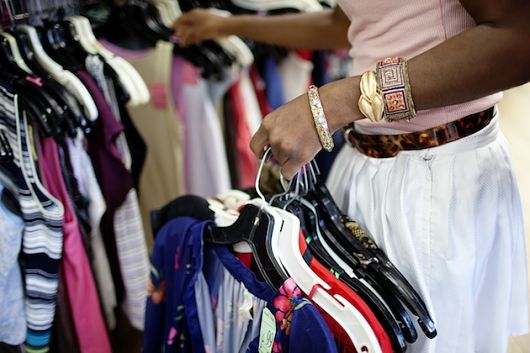How Can I Shop Ethically?

Clothes, food, technology. These are things everybody needs but also have strong associations to ethical problems. Shopping ethically is a growing concern for many people, yet the idea that ethical purchases are not affordable is pervasive. In addition, the constant bad news surrounding the practices of companies makes it seem impossible to be an ethical shopper. All of this leaves many of us with one question:
How can I shop ethically?
It is a question being asked a lot these days. And even though it might not seem easy, a little extra attention can go a long way, and it is not as expensive as it may seem. Here’s a few easy ways to shop ethically.
Do Your Research
In the fight to shop ethically, research is everything.
The biggest companies can afford to market themselves as ethical to shoppers. This allows them to manipulate concerned consumers into purchasing their products.
Luckily, there are ways to know what you’re buying before you buy it. Ethicalconsumer.org, for instance, ranks products in a variety of categories based on different metrics. Much of this information is available for free on the site, though some more in-depth information requires a subscription.
Doing research on products is a good way to be sure that what you’re buying is an ethical choice. In addition to researching, remaining vigilant in reading labels to spot companies notorious for ethical violations, such as Coca Cola and Nestle, is a key element in shopping ethically.
Thrift Shop
Goodwill currently operates over 2,500 stores in the United States. Savers operates over 270 stores. There are also countless independent thrift stores, providing good clothing for a low price. For consumers looking to ethically shop, thrift stores provide an affordable way to avoid incentivizing the abusive practices of the larger clothing industry.
Unethical labor practices is the biggest concern proponents of ethical consumerism have regarding the clothing industry. Though a variety of clothing sources exist that do not support this, many of these sources are not cost-effective. By purchasing clothing at a thrift shop, fashion-conscious activists can both avoid feeding into unethical labor chains and support their local communities.
Make it a Treat
Let’s get this out of the way: most ethical chocolates and coffees will be more expensive than their less ethical alternatives. Unfortunately, the exploitation of the developing world that is all too common within these industries is, more often than not, a cost-cutting measure. When cocoa farmers in the $16 billion-per-year chocolate industry receive between $30 and $100 per year, this is a measure by those in power to cut costs.
This does mean that, in general, most ethical chocolates and coffees will be a bit less friendly to your wallet. But by treating these items as occasional treats, you can save up for the ethical, and better, brands and indulge guilt free.
Shopping ethically is just as much about what we don’t buy as it is what we buy. When chocolate from Côte d’Ivoire, where CNN stated slavery within the chocolate industry is “normal,” is purchased, shoppers incentivize the highly unethical practice. Though more expensive and ethical options may not be purchased with the same regularity, purchasing them exclusively while buying chocolate less exclusively both supports ethical production of chocolates and rejects the lack of ethics within the chocolate industry.
Ethical consumerism is a increasing concern. This is good, but it is also easy to feel nihilistic when faced with a structure which, previously, hasn’t had to take things into account. But by being smart and patient, consumers can find easy and affordable ways to shop according to ethics.
– Andrew Michaels
Sources: Ethical Consumer, Time Green America, CNN Blogs
Photo: Natura Magazine
